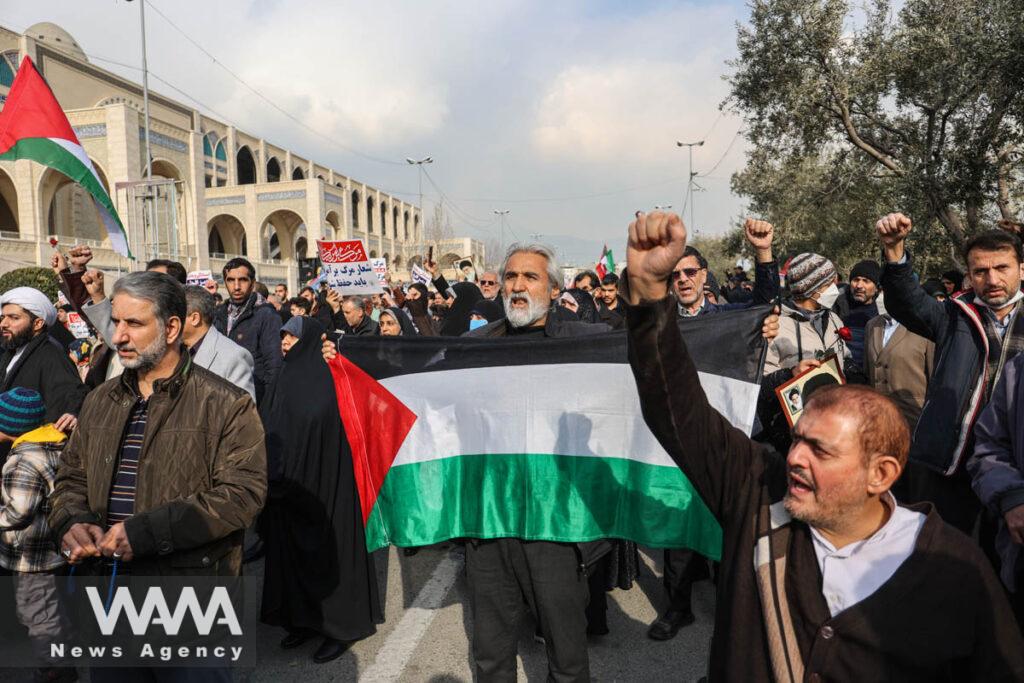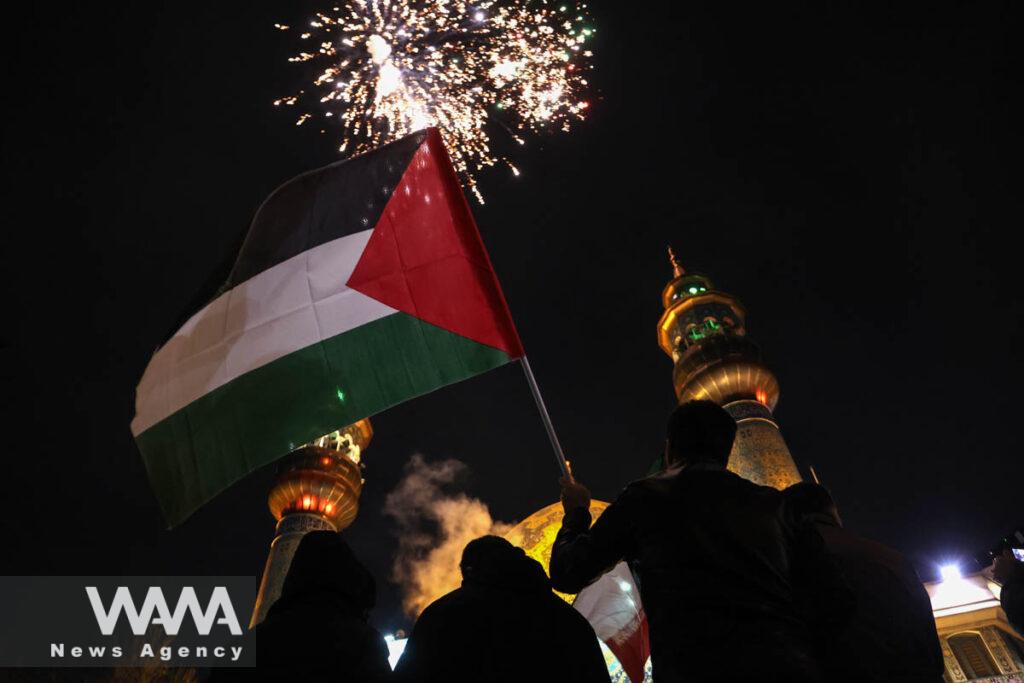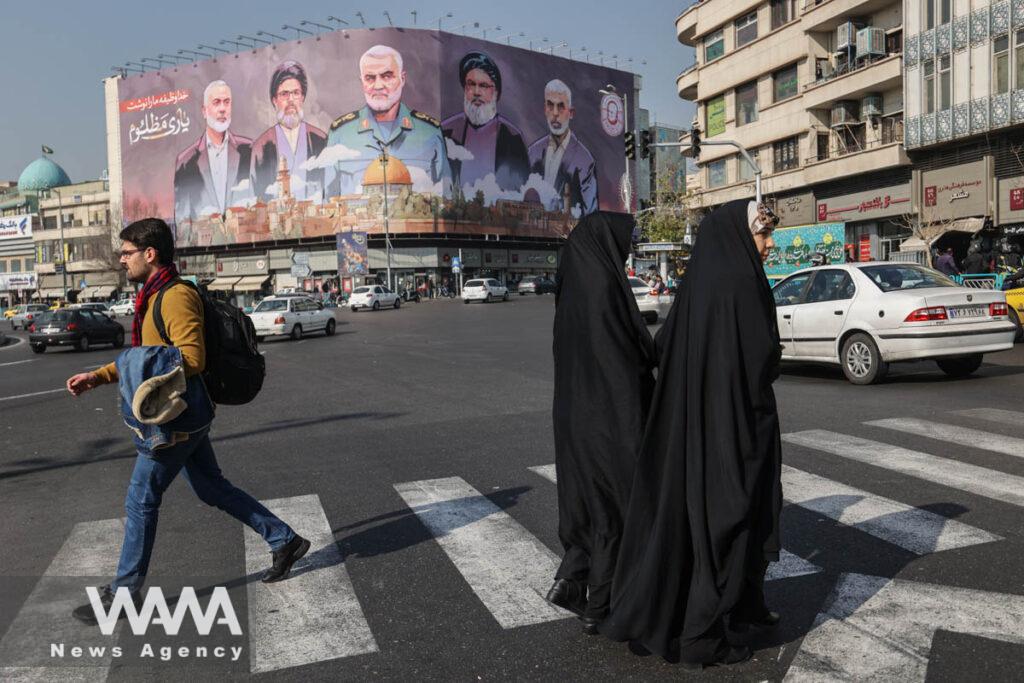Iran Supports Gaza Ceasefire with Caution
WANA (Jan 17) – Over the past several months, Iran has consistently advocated for peace and a ceasefire in Gaza, emphasizing its commitment to ending the violence that has plagued the region. Iranian President Masoud Pezeshkian recently stated, “Iran supports all efforts aimed at achieving a lasting peace and ending the suffering of the Palestinian people.”
Similarly, Foreign Minister Abbas Araghchi mentioned in a presser that “Iran has always called for a diplomatic resolution and the immediate cessation of hostilities in Gaza.” These statements show Iran’s non-changing position on the importance of peace in the region.
While the recent ceasefire has brought a sense of relief, it has been met with mixed emotions among the Iranian public. Many citizens have expressed happiness at the cessation of violence but remain skeptical about the durability of the agreement. Comments gathered by WANA reporters over the past two days reflect this dual sentiment;

Iranians attend a rally in support of Gaza after the news of a ceasefire between Hamas and Israel, in Tehran, Iran, January 17, 2025. Majid Asgaripour/WANA (West Asia News Agency)
“This agreement that has been made is an agreement that shows that Israel has not come to negotiations itself willingly; in fact, it had to do so,” said Mr Fotoohi, an Iranian citizen, “and this obligation was due to the effort and resilience of the people of Palestine.” Another Tehran resident,
Ms Zamanikia shared her joy: “We are very happy, really from the bottom of our hearts, because the feeling that the oppressed people of Palestine have been experiencing for a year and a half has ended. They can have peace, the help reaches them, and they can be strengthened a bit.”
However, skepticism remains a strong emotion; “It is very unlikely because the most disloyal and dishonest party we know around this region is Israel,” added Ms Zamanikia when asked whether Israel would adhere to the agreement. This view was also echoed by Hadi Kazemi, another Tehran resident, who remarked, “Because till now Israel has violated all the agreements it had, and it does not adhere to any agreement because the basis of its existence was built on evil.”
Public demonstrations after Friday prayers on January 17th have been marked by a blend of gratitude for the ceasefire and apprehension about its future. The scenes in major cities like Tehran reflected a population that was both hopeful and wary. Hadi Attaee, a Tehrani citizen, reflected on this duality: “Personally, I was thrilled from the news, even with the high cost we paid, the martyrs we had, but at the end, victory belonged to the Resistance front.”

Iranians light fireworks during a celebration after the news of a ceasefire between Hamas and Israel, in Tehran, Iran, January 16, 2025. Majid Asgaripour/WANA (West Asia News Agency)
From a governmental perspective, Iran has expressed cautious optimism, but officials have made it clear that they are closely monitoring developments. “Because of Israel’s fear and the pressure they’re under, even from their own people’s opinion, they may adhere to it for a while.” said General Ahmad Vahidi, former Minister of Interior, meaning Israelis, in his opinion, do not respect any treaty or commitments so they will not stay by it permanently, but anyways the Resistance Front is the winner in every case.
The ceasefire is being viewed through a lens of scepticism, not just by officials but by the general public. This cautious approach stems from past experiences where temporary agreements have been broken, leading to renewed violence and suffering.
Iran’s leadership has repeated that the global community must hold Israel accountable for its actions moving forward. “True peace requires not just words but actions that build trust,” said Abbas Araghchi during a televised interview recently.
In the coming days, all eyes in Iran will be on Gaza, watching to see whether the ceasefire holds and whether it paves the way for meaningful dialogue and a lasting resolution. Until then, the sense of cautious optimism persists, accompanied by an awareness of the complications and challenges ahead. For Iranians, the hope for peace is strong, but so is the recognition of the need for vigilance in the face of uncertainty.

Iranians walk next to a billboard with a picture of late Hamas leader Ismail Haniyeh, senior Iranian military commander General Qassem Soleimani, late Lebanon’s Hezbollah leader Sayyed Hassan Nasrallah and late Hamas leader Yahya Al-Sinwar on a street in Tehran, Iran, January 16, 2025. Majid Asgaripour/WANA (West Asia News Agency)













